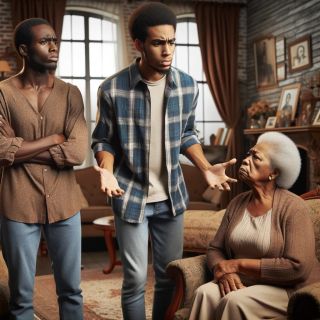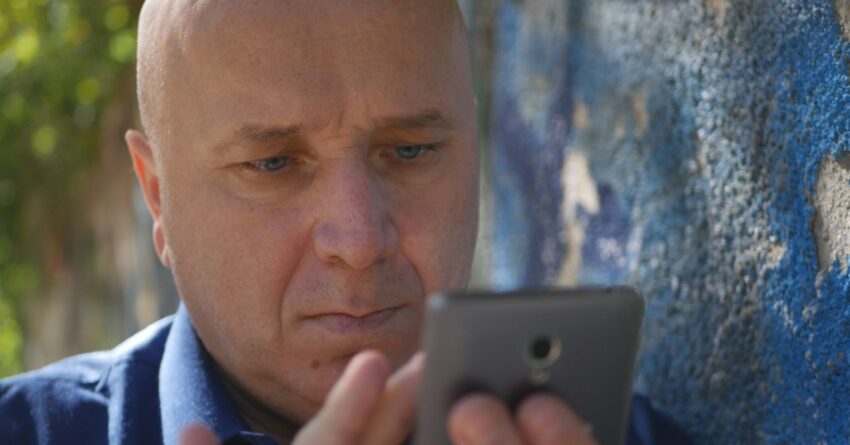
Middle aged son and daughter express anger at their 65 year old divorcing mother.
Couples 50 and older in the U.S. and abroad continue to divorce in record-setting numbers. In the U.S., the divorce rate for this group has doubled over the past 30-plus years and is predicted to triple by 2030. The familial emotional landscapes can become complex, with strained relationships ensuing, affecting generations from adult children to great-grandchildren.
The following are some reasons adult children withdraw from their relationships with their parents and some remedies that have helped.
Perception of Insensitivity
45-year-old Sam and 43-year-old Tiffany are the children of Harry and Constance, who were involved grandparents and great-grandparents. For five years, Tiffany and Sam watched Harry fighting and eventually surviving a severe medical condition that could have been fatal. During their parents’ gray divorce, they found out that Constance was unwilling to come to an equitable financial settlement with their father and was continuing to fight with him about it in court. They told their mother they expected her to show compassion for their father by reaching a fair financial settlement. Constance continued the court battle. Sam and Tiffany told their mother she was heartless and did not deserve to see them, her grandchildren, and great-grandchildren. Four family generations lost contact.
Remedies: Sam and Tiffany received a referral for a psychologist who specialized in helping families of gray divorce. They met with him and explained the situation. Constance agreed to meet with him, and he helped her process her anger at Harry, which had driven her to fight him in court about the financial settlement. When Constance could see how much she valued her family relationships, she told her lawyer she wanted to create an equitable financial settlement and offer it to Harry’s lawyer. Harry accepted Constance’s offer.
Eventually, Constance, Harry, Sam, and Tiffany met with the psychologist, who helped Constance develop an effective apology, which she told Harry, Sam, and Tiffany in a family session. They learned to communicate openly with each other in additional family sessions. Over time, the four generations fully reconnected and celebrated family events together.
Grieving the Loss of the Nuclear Family
Research found that within 10 years after a gray divorce, approximately 22 percent of women and 37 percent of men of gray divorce re-partner, which refers to remarrying or forming a cohabiting union.
Matthew and Setsu, the parents of adult children Sakura and Hiroto, divorced 18 months ago. Since their birth, Setsu has been an involved grandmother for their three grandchildren, aged 8, 10, and 12, and Matthew traveled a lot for work.
Recently, Matthew married Josephine, who had two adult children and two grandchildren who lived nearby. Wanting to become “a happy new family,” Matthew and Josephine immediately began inviting Sakura, Hiroto, their spouses, their children, and Josephine’s children to their home for family gatherings. Hiroto and Sakura resisted this. Repeatedly, they told Matthew, “This is way too soon for all of us. Our kids cry because they miss their grandmother. You never talk about our previous family life together, as though it never existed. You dishonor our former life by trying to replace our mother and our kids’ grandmother with Josephine. She, her kids, and grandkids are strangers to us. It is too painful to see you with a new woman and her kids.” Matthew continued to reply, “I have a new life now. I am happy, and I deserve to be happy. Why can’t you be happy for me?”
Matthew neither heard nor understood what Sakura and Hiroto told him. They and their children withdrew from Matthew.
Remedies: Unfortunately, this family did not embrace any available remedies like help from professionals, clergy, or family members. Matthew did not contact Hiroto and Sakura, and they did not contact him. They never reconciled.
If your parent-adult-child and extended family relationships are struggling due to divorce, a clergy member, therapist, medical doctor, or other healthcare provider could help you and your family heal and reconcile your relationships.
* Names and details changed to protect patient confidentiality.
To find a therapist, visit the Psychology Today Therapy Directory.
Read the previous post here.
© 2024 Carol R. Hughes, Ph.D.
Facebook image: EUStock/Shutterstock
